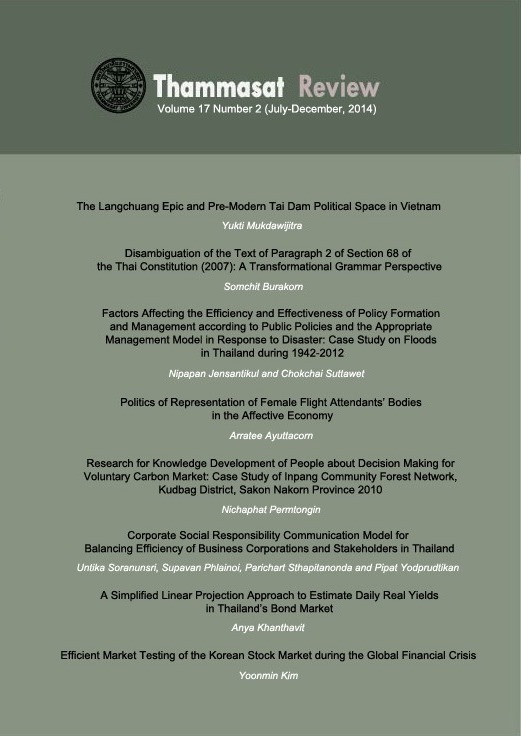Efficient Market Testing of the Korean Stock Market during the Global Financial Crisis
Abstract
Recent asset market bubbles and bursts have generated interest in the efficiency of stock market behavior. Efficient market hypothesis (EMH) has been challenged by the global financial crisis and literature on behavioral finance. A period was chosen coinciding with the global financial crisis when the standard efficient market hypothesis (EMH) was less likely to hold. The Korean stock market’s (KOSPI) behavior passed standard efficient market tests for random walk, and was efficient. KOSPI investors should not experience abnormal returns when stock prices reflect no news shocks. Stock prices “today” reflect today’s news and are independent of price changes yesterday.
Keywords Korean stock market, Efficient Market Testing, global financial crisis, stock prices
Downloads
How to Cite
Issue
Section
License
The opinions and ideas expressed in all submissions published in Thammasat Review are solely that of the author(s) and do not necessarily reflect that of the editors or the editorial board.
The copyright of all articles including all written content and illustrations belong to Thammasat Review. Any individuals or organisation wishing to publish, reproduce and distribute a particular manuscript must seek permission from the journal first.








